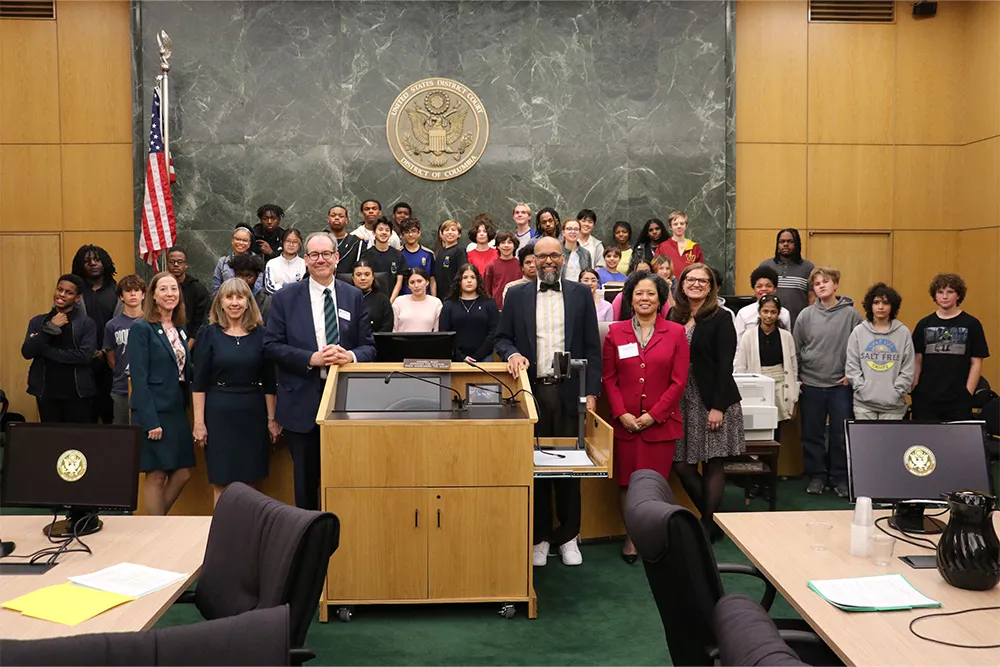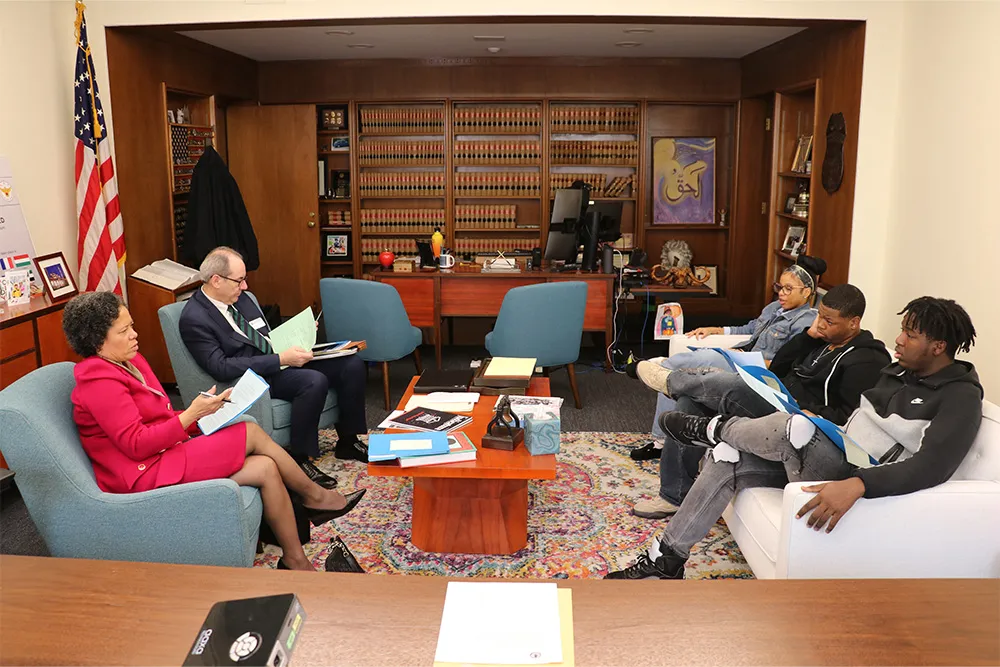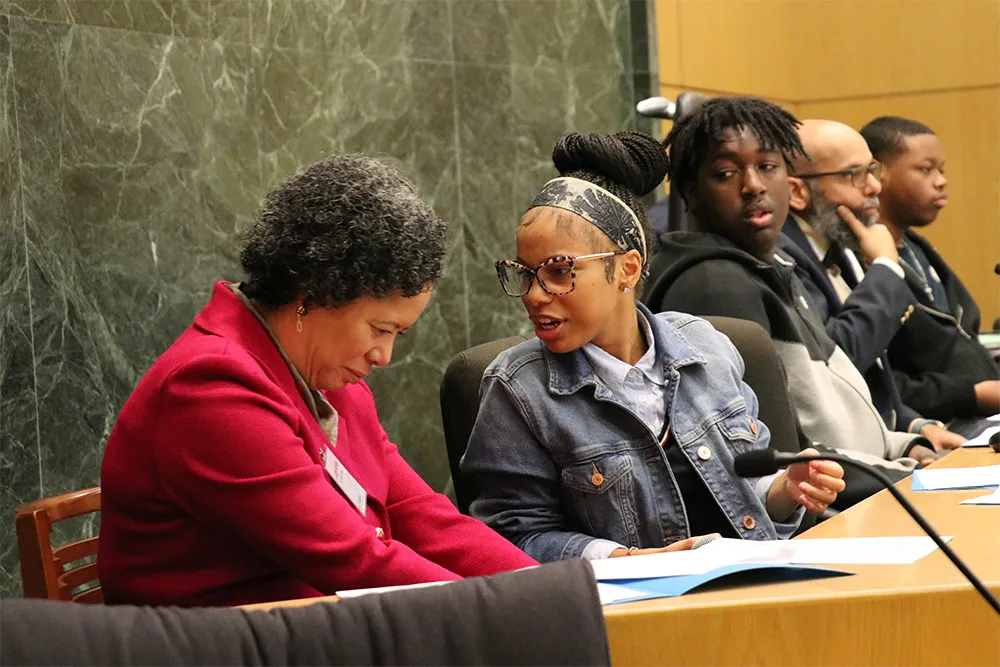
U.S. District Judge Michael J. Newman, front left of podium, U.S. Magistrate Judge Zia M. Faruqui, front right of podium, and U.S. District Judge Angel Kelley, front right, are joined by other judges, attorney volunteers, and student participants following a civics program at the D.C. federal courthouse.
Instead of learning about the Judiciary through social media or courtroom dramas on TV, students are entering federal courthouses to engage with judges and court professionals on careers in the courts — learning valuable legal and life skills along the way.
“Creating a human connection with students gives young people insights into the real-life practice of impartiality and fairness in the courts. It helps them see themselves in a variety of roles that make the system work,” said U.S. District Judge Michael J. Newman, of the Southern District of Ohio, who joined U.S. District Judge Angel Kelley, of the District of Massachusetts, and U.S. Magistrate Judge Zia M. Faruqui, of the District of Columbia, during a recent educational program for students at the D.C. federal courthouse.
Using a realistic simulation of a court hearing, which can be conducted at many federal courthouses across the nation, students take center stage as jurors, judges, and counsel, deliberating First Amendment issues in a relatable scenario centering on a school protest. The activity includes a robust question-and-answer period facilitated by a judge, an attorney volunteer, and a non-attorney court professional who also talk about career paths in the courts.

Working in the D.C. chambers of U.S. Magistrate Judge Zia Faruqui, visiting U.S. District Judges Angel Kelley, front left, and Michael J. Newman, back left, prepare students for a simulated court hearing.
Nearly 50 high school students in Washington, D.C. were the latest to experience the program in late March. The judges, and attorney volunteers from across the country who are active in the Federal Bar Association Foundation, were in D.C. for a Federal Bar Association meeting. Local leaders of the Urban Debate League also participated, so that they can work together to replicate the program at more federal courts across the country.
“The program engages students in challenging and relevant discussions about rights and the law, encouraging them to employ in front of judges the critical thinking and public speaking skills they learn in debate,” said McAlister Clabaugh, a program associate at the Urban Debate League’s D.C. chapter. “The informal conversations and networking afterward provide unique opportunities for students to engage with legal professionals and judges, building contacts and humanizing the legal system.”
As part of the career exposure element of the event, James Brown, Jr., an IT specialist at the Administrative Office of the U.S. Courts, explained how the federal Judiciary relies on more than just judges and attorneys in its mission of ensuring equal justice under law. IT experts, courtroom deputies, interpreters, and probation and pretrial officers are some of the many career opportunities that serve vital functions in the judicial branch.
“It’s rewarding to use my IT management expertise to support the courts every day in their mission of justice,” Brown said.

Seated on the bench, a student judge confers with U.S. District Judge Angel Kelley, left, during oral arguments on the First Amendment at a civics program in a D.C. courtroom.
Judges agree that students leave the programs with a better understanding of the court system and their possible roles within it.
“This program reinforced my belief about judges being honorable and trustworthy,” said Ian McPherson, a high school student who participated in the recent program.
Teachers, debate coaches, Federal Bar Association members, and others can find educational court programs at their nearest federal courthouse, by contacting the federal courts’ national educational outreach manager, Rebecca Fanning.
Visit the educational resources section for additional programs and activities.
